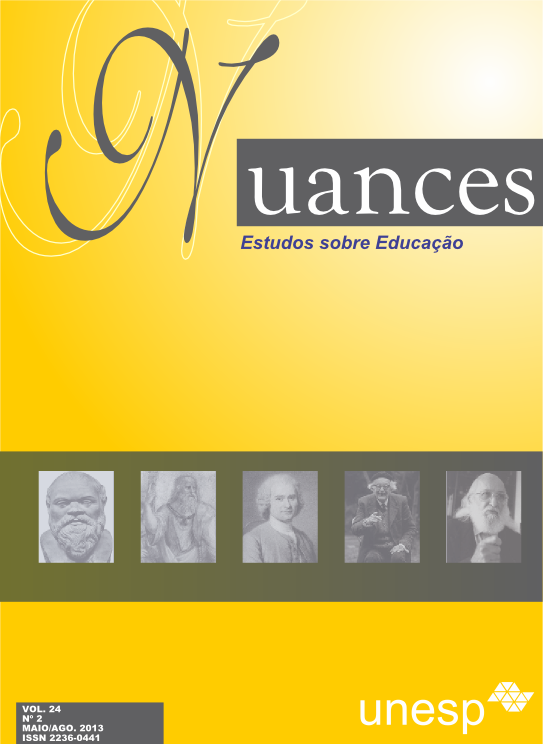ELEIÇÃO DE DIRETORES E GESTÃO DA ESCOLA PÚBLICA: REFLEXÕES SOBRE DEMOCRACIA E PATRIMONIALISMO
DOI:
https://doi.org/10.14572/nuances.v24i2.2482Keywords:
School management, Election of directors, Democracy, PatrimonialismAbstract
The text presented is the result of a qualitative research refers to school management as an indicator of quality in education, discussed from two dimensions: a) the election of directors as one of the possible mechanisms that facilitate the realization of proposals for democratic management and, b) the potential effects of patrimonialism (as a concept and practice) in the process of seeking and achieving quality in education. Therefore, we conducted a qualitative research and documentary in a public school in a municipality located in the northern region of the state of Rio Grande do Sul, in the time frame of 1990-2012, making use of a limited set of laws that relate the election of directors as possible mechanism of democracy in school. The empirical data collected, it was added minimal debate about the structure of patrimonialism as Brazilian political culture. So the article - cut this larger research - focuses on the discussion of bibliographic references and municipal legislation that contextualizes the analysis of the democratic potential or patrimonial management processes in the municipality. In conclusion, it is understood that the election of directors has the power to alone restrict patrimonial practices, without the collaboration of a number of other mechanisms of school management and educational administration. However, the school management to assign prominence as co-responsible for the paths that the process of democratization will take within the school is, above all, also consider management as capable of providing quality education.
Downloads
Downloads
Published
How to Cite
Issue
Section
License
Atribuição-NãoComercial
CC BY-NC
Esta licença permite que outros remixem, adaptem e criem a partir do seu trabalho para fins não comerciais, e embora os novos trabalhos tenham de lhe atribuir o devido crédito e não possam ser usados para fins comerciais, os usuários não têm de licenciar esses trabalhos derivados sob os mesmos termos.





